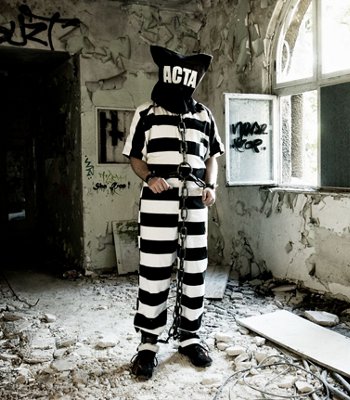The controversial ACTA agreement is facing a new setback in Europe after the German government announced today that it won't sign the agreement, at least not for now. Other nations including Latvia, Poland, the Czech Republic and Slovakia have also backed out in recent days, but as Europe's biggest economy if Germany decides to withdraw its support of ACTA the move could spell trouble for the international agreement.
Details are scarce at this point but according to reports, the German justice ministry voiced its concerns about ACTA, while a foreign ministry spokesperson said that the country needed "time to carry out further discussions" about the treaty. The public outcry against ACTA may have factored into Germany's decision as well. More than 50 protests are scheduled to take place across the country on Saturday, according to BBC.
While 22 of the 27 European member states have signed up to ACTA, the agreement has to pass through the European Parliament in June before it can be brought into force in Europe. The U.S. signed it in October 2011, and other major economies like Australia, Canada, South Korea and Japan followed suit.
Proponents of ACTA say that the treaty will help fight global copyright theft in a number of industries. Opponents, however, argue that ACTA will harm free speech on the Internet.
There's been a lot of misguided information going around about exactly what ACTA entails, due in large part because it was negotiated in extreme secrecy by a small group of wealthy nations. To shed some light on the matter, Ars Technica recently published a piece that separates the 'dubious' claims from the facts.
Also worth reading is a Wall Street Journal interview with Kader Arif, the European Parliament's rapporteur who publicly resigned last month in protest to the way that the signing of the agreement was handled.
